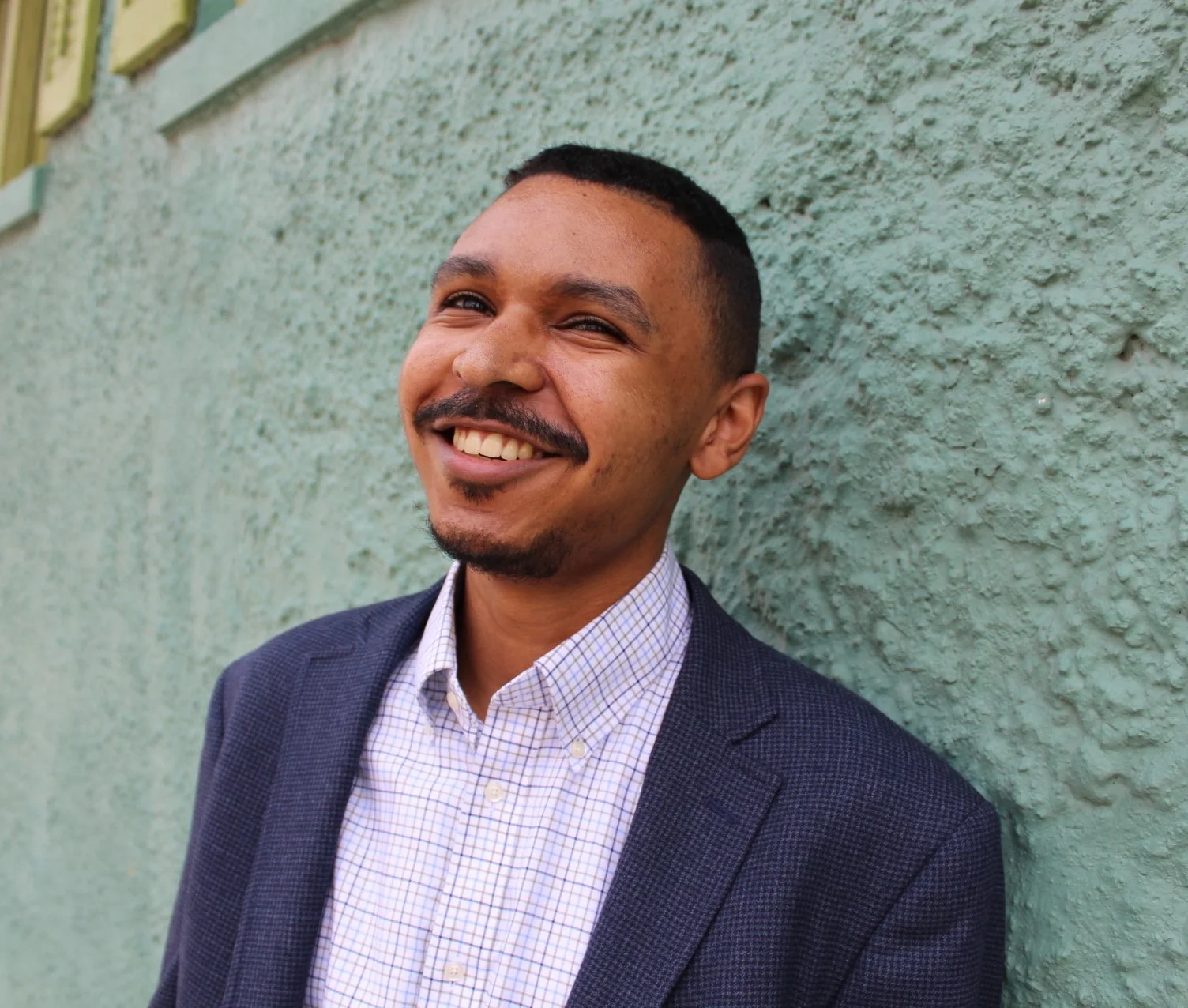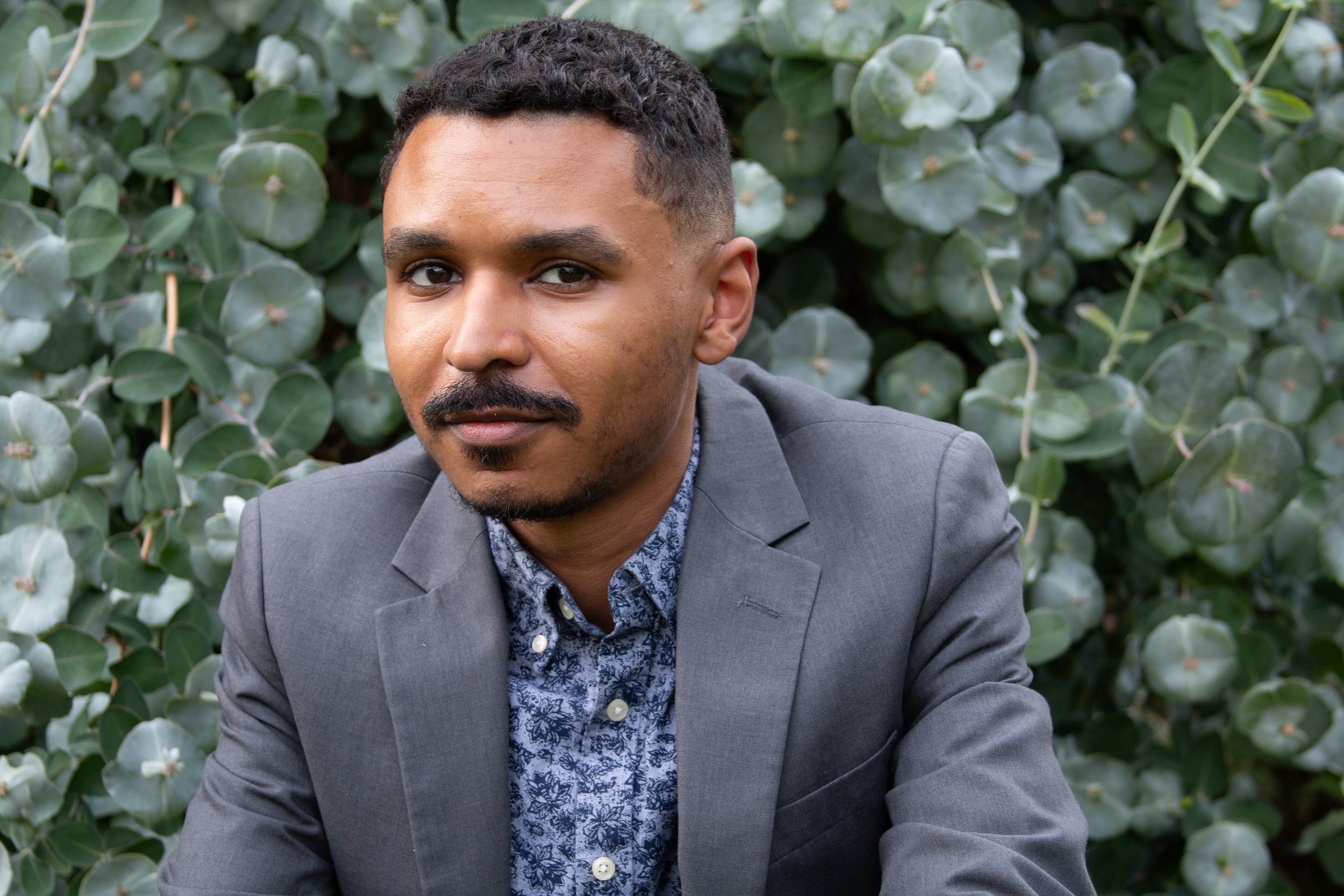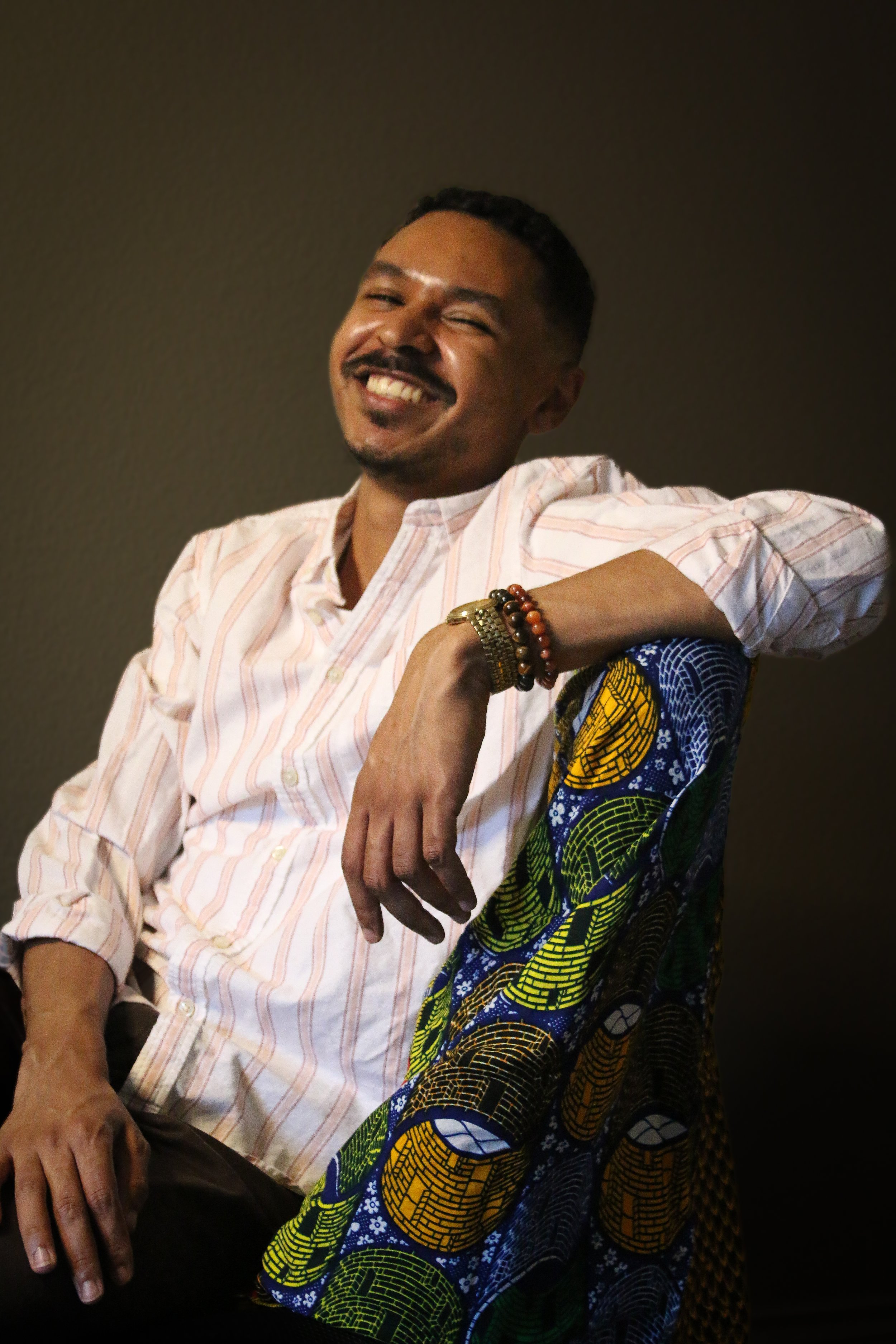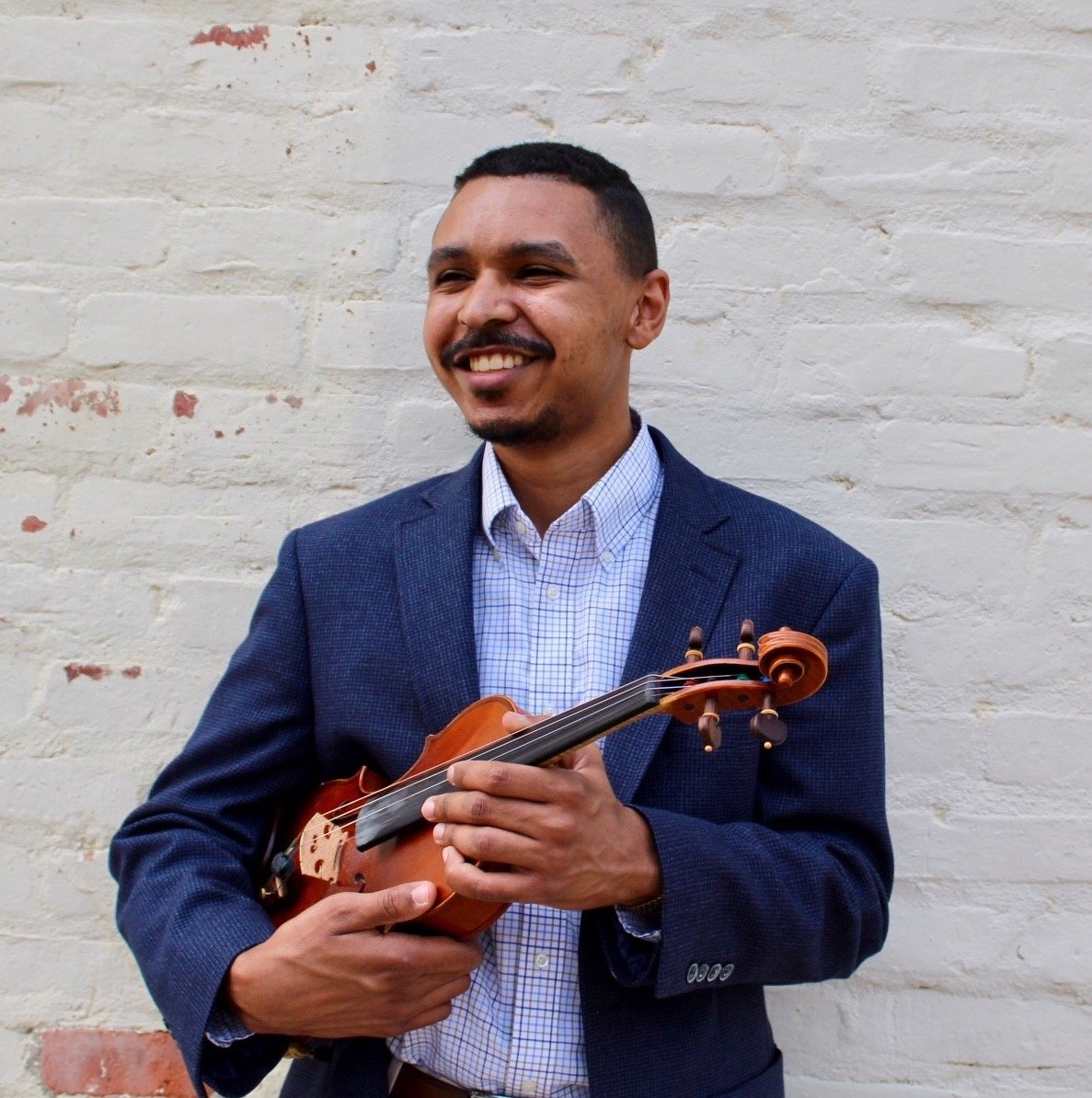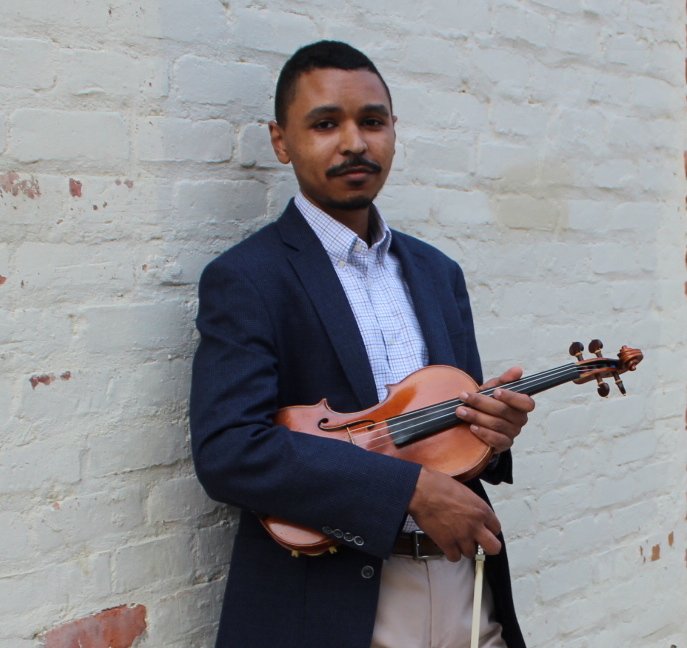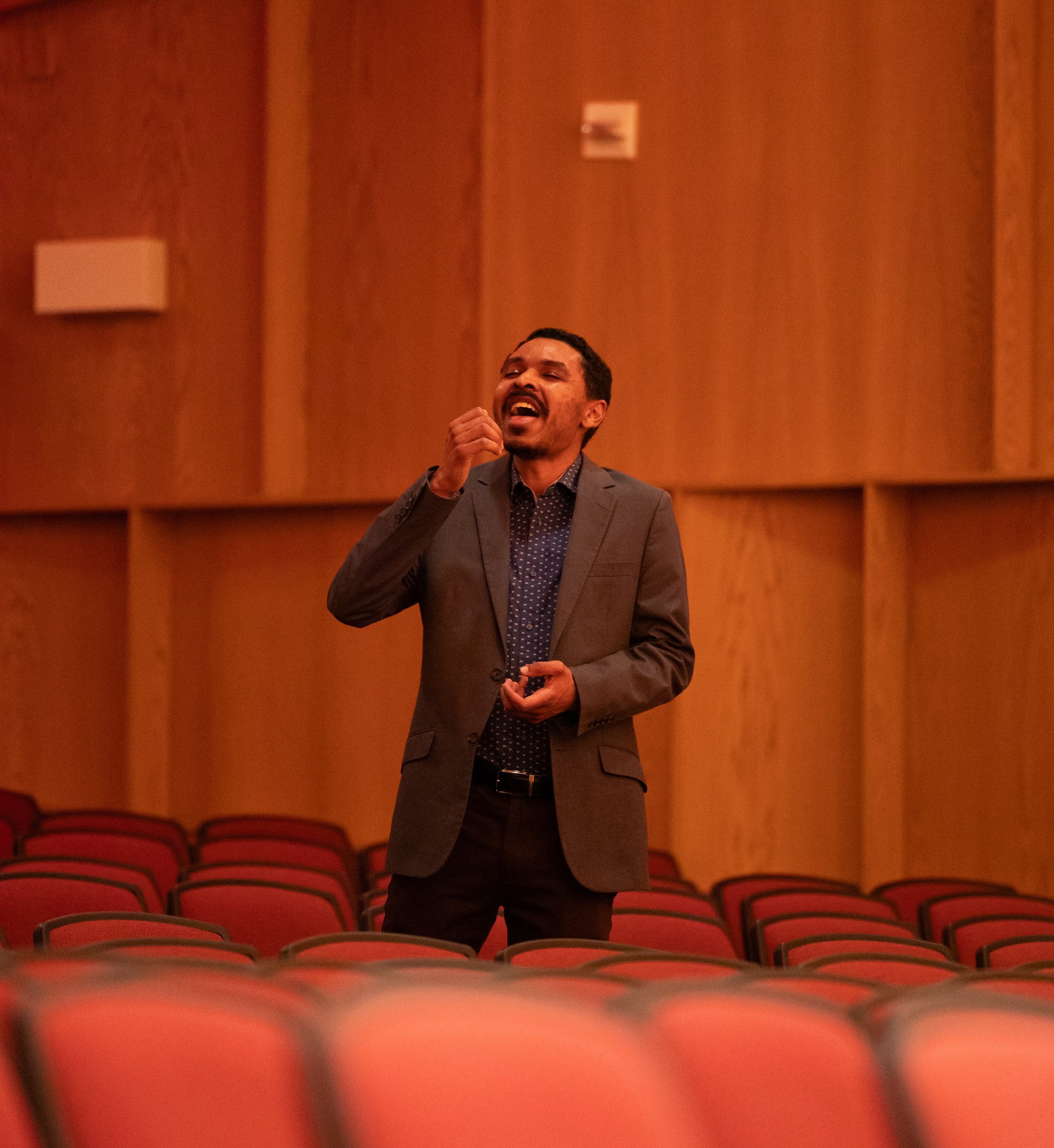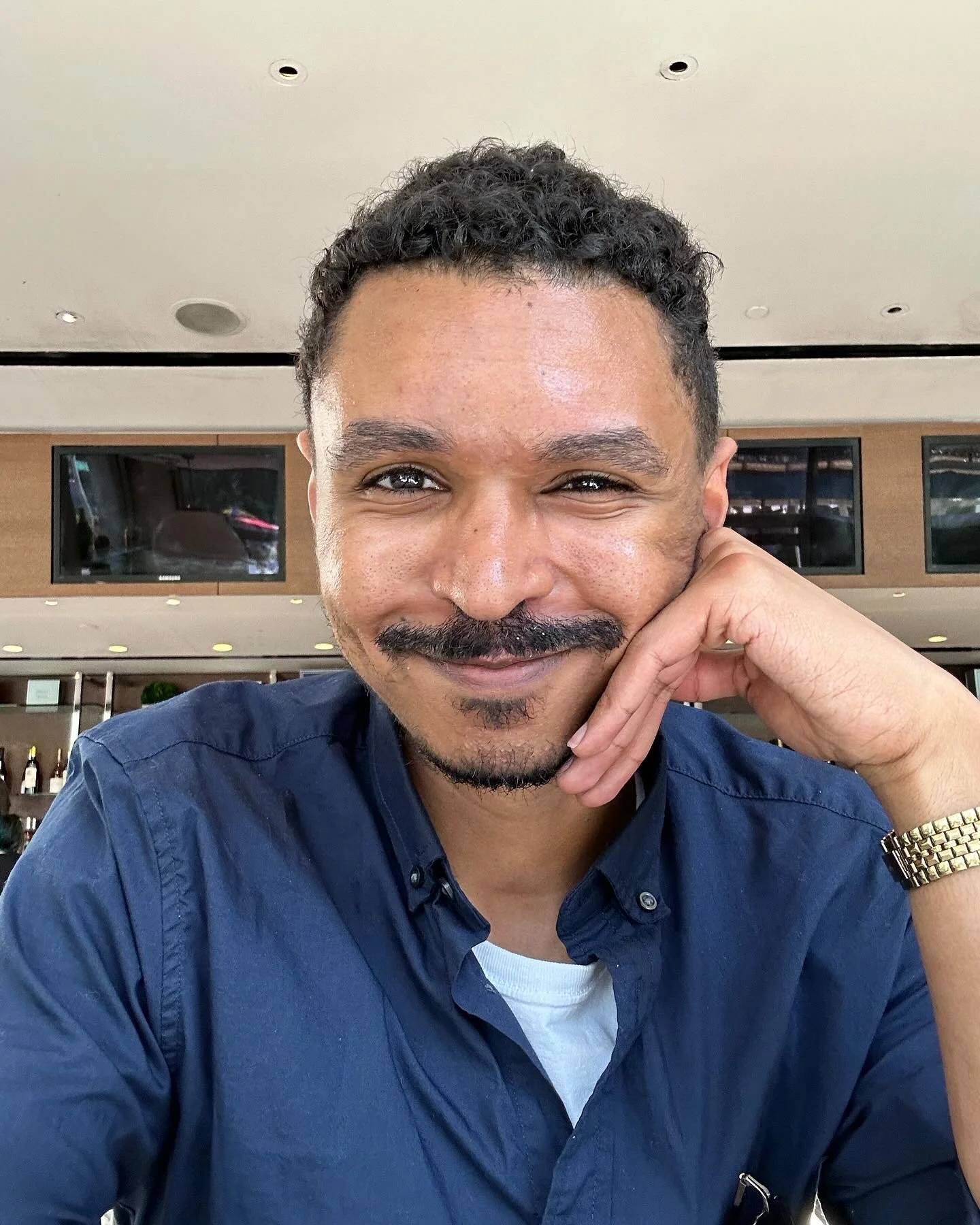PC: Johnette Martin
Bio
Having a passion for youth and community engagement, Nicholas Felder (he/him) is a Black queer artist, composer-vocalist, activist, and educator who creates art around identity, communal joy and healing, and youth empowerment. He builds community in artmaking, unlocking truths around self-identity, and creating a space for embodied expression. Nicholas has led educational programs and workshops with numerous arts organizations, including the Detroit Symphony Orchestra, American Composers Orchestra, Denver Young Artists Orchestra, El Sistema Colorado, Neutral Zone (Ann Arbor, MI), and the University of Colorado Boulder College of Music. He loves to encourage teens and young adults to express their social and political views through artmaking.
An active composer and collaborator, Nicholas has had his works performed nationally by ensembles, such as the Hawaii Youth Symphony, Mivos Quartet, Kennesaw State University Symphony Orchestra, DC Youth Orchestra Program and University of Michigan Converge Quartet.
A few of Nicholas’s project highlights include performing as a featured artist at The Museum of Boulder for their 2024 Con-nect event. In partnership with the Boulder Museum of Contemporary Art (BMoCA), the Boulder County Arts Alliance, and CU Boulder Office for Public and Community Engaged Scholarship, Nicholas performed works on Black futurity, identity, youth empowerment, and healing, as part of the Boulder Museum’s exhibit “Proclaiming Colorado’s Black History.” In 2021, Nicholas worked with co-composer Alfredo Cabrera at The School at Marygrove in Detroit on a project called “Sing My Song.” Under the Hampsong Foundation’s partnership with the University of Michigan School of Music, Theatre, and Dance, Nicholas and Alfredo led workshops to guide a class through writing, recording, and producing a song about experiencing and overcoming trauma.
Nicholas has earned degrees from the University of Michigan and Kennesaw State University and is currently earning his Doctor of Musical Arts (DMA) in Music Composition at the University of Colorado Boulder.
For a longer bio, see the press kit below.
My Story
My growing up was split between Houston, Texas and Atlanta, Georgia. I always knew I was an artist. As early as I can remember, I was obsessed with drawing pictures of people in faraway lands, going on adventures, and falling in love. I started writing stories to accompany the pictures and somewhere around middle school and high school, I decided to try out songwriting and then composing. I now see these two forms of music creation as one in the same, but growing up, I think I compartmentalized and grouped pop music and jazz and R&B in one area and film and Eurocentric classical in another. But either way, music was speaking to me in a way it hadn’t before. I sang in cherub choir at the same time I was drawing and started playing violin in fifth grade. Yet somehow, I think it was the ability to tell stories through another medium that greatly attracted me to music creation.
I explored a lot in college, going from film soundtrack to musical theatre to Eurocentric classical to experimental and then found myself returning to my roots after graduation. I didn’t want to choose anymore between the different sides of myself. I just wanted to connect with who I was as a person and artist. So, I suppose I did what many people might do and returned to the beginning—delving into my ancestral history through African American spirituals, gospel, jazz, and folk music. I now blend these styles with my Eurocentric classical training in my compositions. I love singing in my own pieces and writing music about identity, communal joy and healing, and youth empowerment.
In high school, I was old enough to assist with the music program at my church’s Vacation Bible School, an annual weeklong summer camp for K–5 students to participate in Bible lessons, crafts, games, and music making. Each week culminated in a short musical performance with hand motions and dance moves for parents and families. It was my entry point into working with youth, and I simply loved it. For a while, I just thought it was because I enjoyed sharing music with people (and I do). But then one year, the music director was out for a day, and I was in charge of leading 70 students throughout the music classes and assemblies. I just came alive! I remember small group leaders coming up to me afterward, admiring my warm, magnetic, and commanding energy. The more I work with youth over the years—serving as a K–5 literacy tutor, music composition teacher, and arts activism program advisor (to name a few)—and learn from them, the more I realize how much I was meant for this work.
My Mission
Youth hold so much knowledge and experience and creativity. They know and notice a lot more than we, as adults, give them credit. And though they begin to bottle that energy up as teens, many of them still carry a fire strong enough to incite a revolution. I continue to ask myself questions, like: How can we empower youth to use their voices and express themselves and speak out on social and political issues that directly affect them just as much as anybody else? How can we support them in collective healing and give them the safe space to just breathe and be? How can we help youth learn about their emotions and connect with themselves and others? Some teachers transition to administrative work because they exhausted the limits of influencing change in the classroom. Similarly, I found the limits of effecting change through writing and premiering music. It wasn’t enough. I needed to be in the room with students, teachers, social workers, administrators, counselors, and policymakers. I now empower young voices in creativity, leadership, and cultivating compassionate relationships both with themselves and each other. Artmaking is just one powerful tool through which this is possible. This is my calling—my mission.
PC: Clementine Miller
Press Kit

